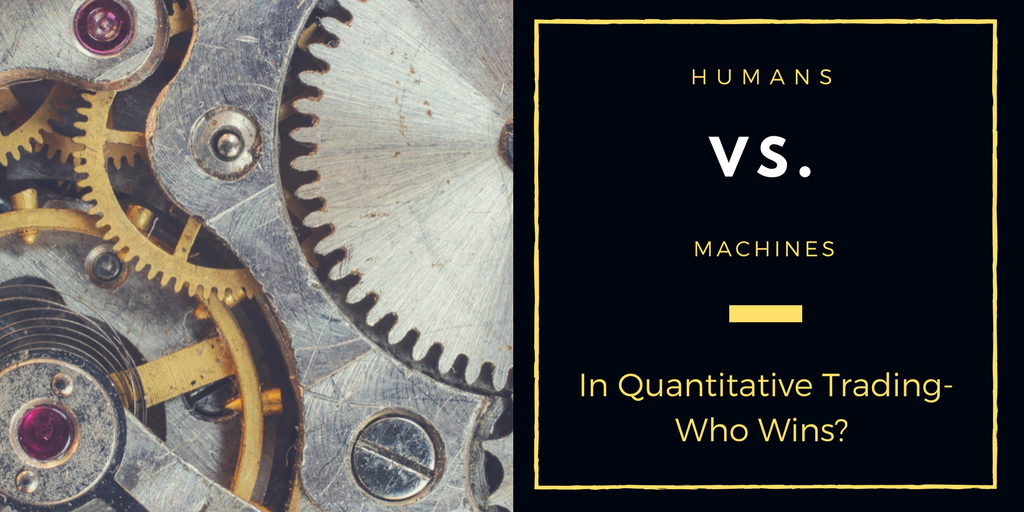Humans versus aliens. Humans versus nature. Humans versus zombies. Many a story has been told that has pitted humans against some supreme, indomitable force. Many would argue that technology is becoming so advanced so as to eclipse human activity, and maybe in some fields that will soon be the case. One story that is lesser known is that of quantitative trading and the role that human traders play alongside high-frequency machines.
Quantitative trading is sometimes stigmatized as being this technology-driven, and therefore dehumanized, field. It is true that quantitative trading requires the use of high-frequency computers to process complex algorithms. But who creates these algorithms? Humans. Quantitative trading is not dominated by machines, but rather supplemented and improved by them.
Both humans and machines have faults. Humans make mistakes and technology fails. Together in the realm of algorithmic trading, however, humans and machines have a symbiotic relationship in which human traders rely upon a sophisticated electronic infrastructure to experiment with better, faster algorithms and high-frequency machines are only of any use with the human brain power to feed them advanced algorithms.
Machine learning, in which computers learn to process information without being specifically programmed to do so, is highly relevant in the fields of Information Technology (IT) and computer science, due to the need for processing large amounts of data. The same need applies to trading. When stock prices are in constant fluctuation and shares are bought and sold in a matter of seconds, these highly intelligent machines help to streamline the process. According to Wired, “computer coding is now responsible for most of the activity on Wall Street,” with some estimates citing it accounts for 70 percent of total trade volume. AI represents a fraction of this percent.
Intelligent quants and the advanced hardware they operate go hand-in-hand. While experience has shown that when humans are pitted against computers, the computers always win, research has shown that humans and computers make an unbeatable team. It’s a natural progression of trading methods. As algorithms become more advanced, the market requires a sophisticated system to process them and adapt to shifting market conditions.
Admittedly, these high-frequency machines can and have made mistakes, and they will continue to do so as no machinery is without flaws. However, to keep up with the millions of data points with which algorithms must interact, high-frequency computers are an efficient alternative to humans who may act on emotion rather than logic in high-pressure situations. For better or worse, machines are here to stay in the stock market, but I can say with confidence as a quantitative trader that traders are not dominated by machines but empowered by them. The best thing anyone can do in this new market is to become experts in the technology we created and the forces, dynamics, and nuances of the traded marketplace. The winners in the human versus machine debate? I’ll let you be the judge of that.

